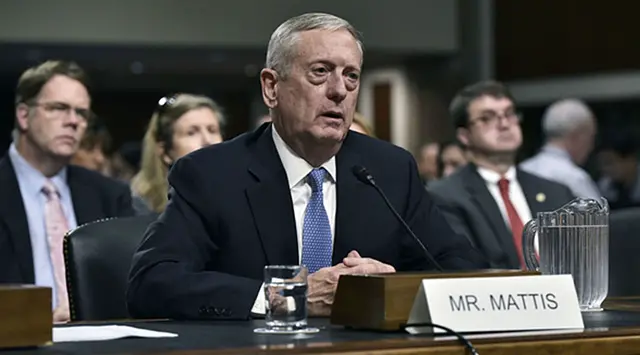US President-elect Donald Trump's pick to lead the Pentagon told Congress yesterday the United States must be ready to confront Russian behaviour in areas where the two countries cannot cooperate, even as he backed Mr Trump's bid to engage Moscow.
The remarks by retired Marine General James Mattis in written responses to questions from Congress set the tone for his Senate Armed Services Committee confirmation hearing that began at 9.30am (10.30pm Singapore time).
Gen Mattis, 66, agreed with Mr Trump's call to deal more directly with Russia - but with important caveats. "We engaged with Russia even during the darkest days of the Cold War, and I support the President-elect's desire to engage Russia now," he said.
At the same time, "when we identify other areas where we cannot cooperate, we must confront Russia's behaviour and defend ourselves if Russia chooses to act contrary to our interests", he said.
Gen Mattis also gave a strong endorsement of the Nato alliance that was formed to counter Soviet aggression during the Cold War, which may allay concerns about Mr Trump's comment during his presidential campaign that the US may not keep its commitment to defend Nato allies unless they spend more on their military budgets.
"I believe Nato is central to our defence" because "it facilitates European stability and as a military alliance, it helps sustain our values", Gen Mattis said.
During the hearing, he said there needs to be a realisation that Russian President Vladimir Putin is trying to break Nato and that he thinks the world order is under the "biggest attack since World War II".
Gen Mattis said China's behaviour "has led countries in the region to look for stronger US leadership".
He said: "If confirmed, I will examine ways to strengthen our allies and partners, while taking a careful look at our own military capabilities in the region. We must continue to defend our interests there - interests that include upholding international legal rights to freedom of navigation and overflight."
He answered "yes" when asked if he will examine whether US forces in South Korea have the capability to destroy sites in North Korea containing weapons of mass destruction.
(THE STRAITS TIMES)
 简体中文
简体中文

